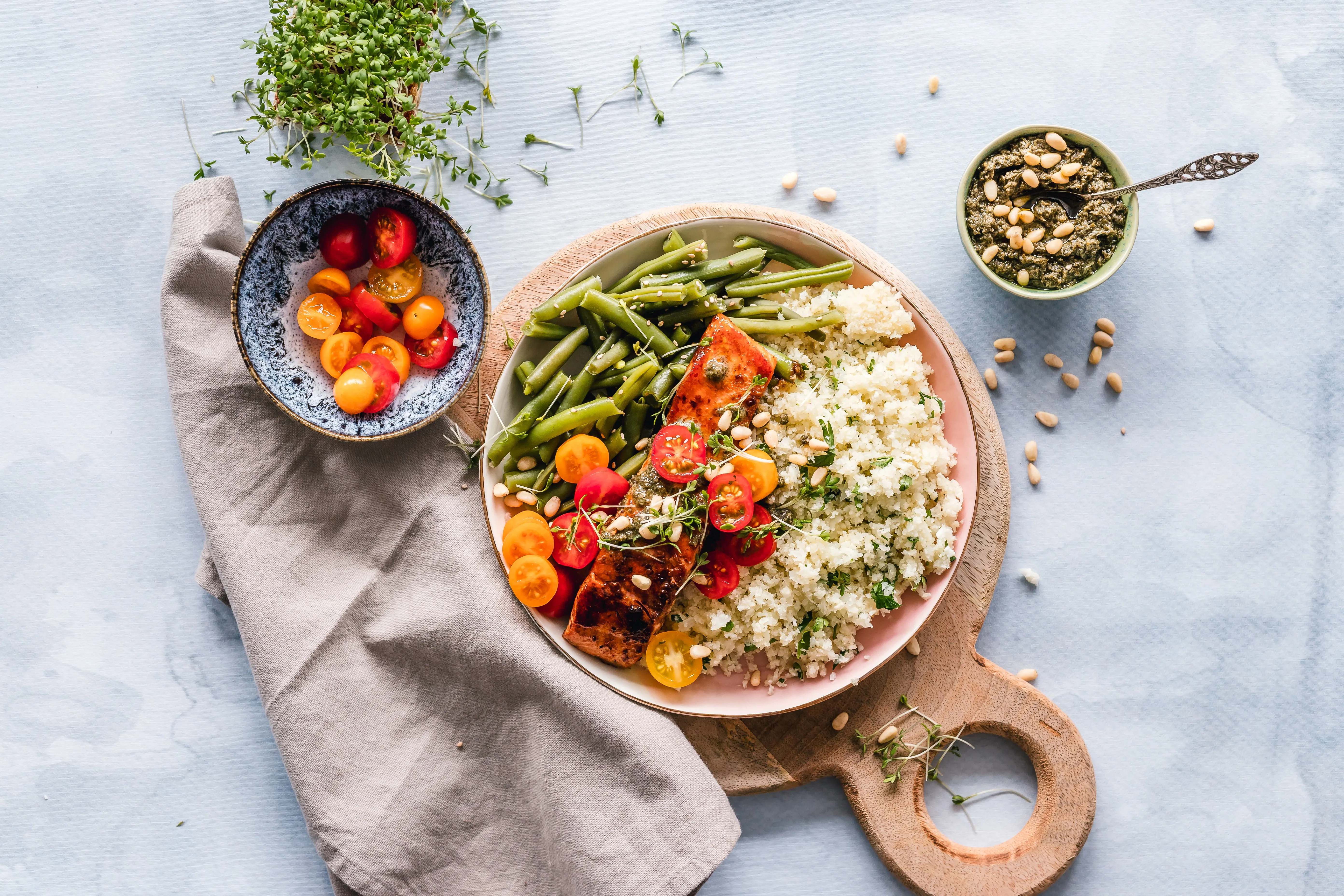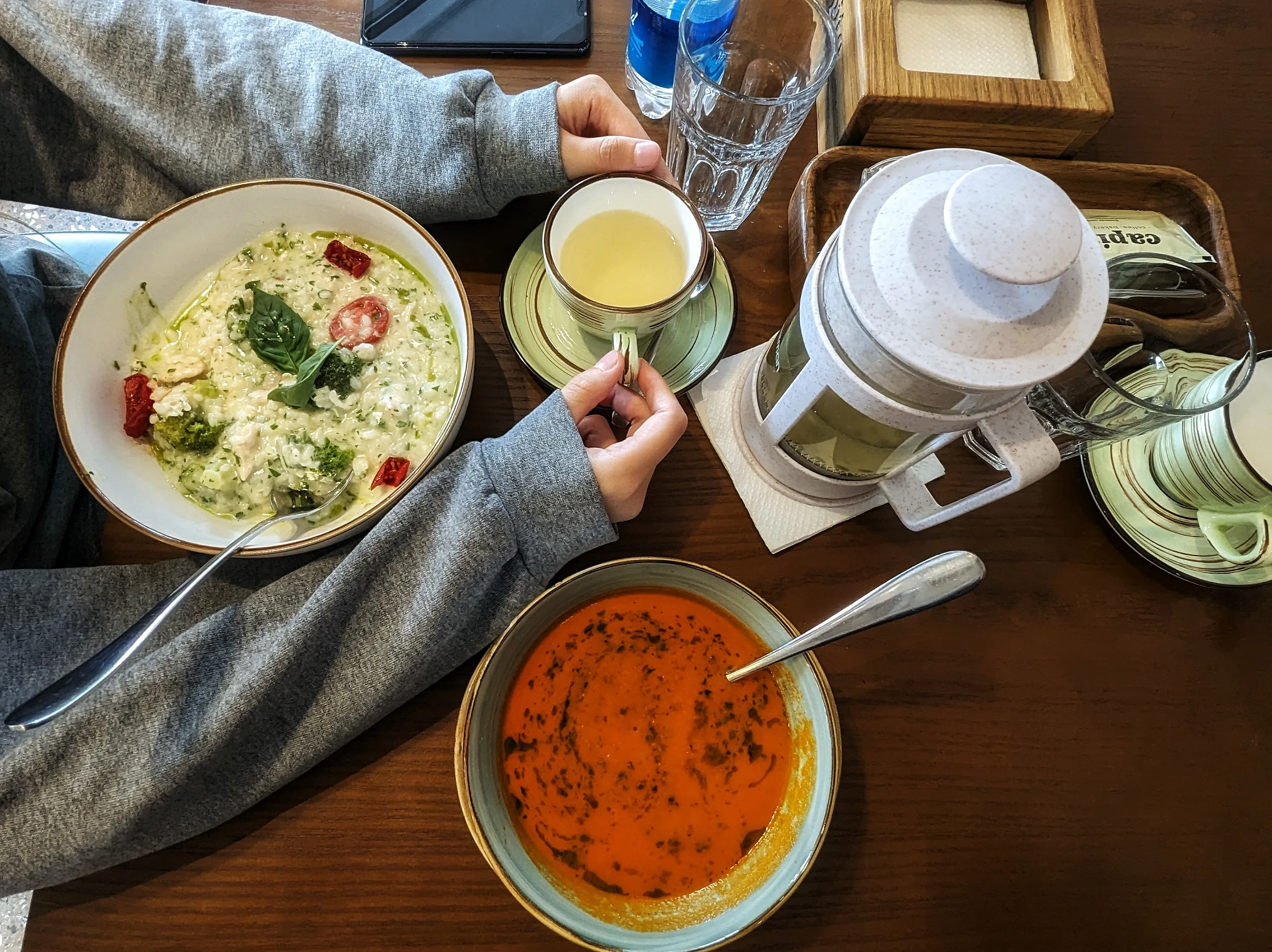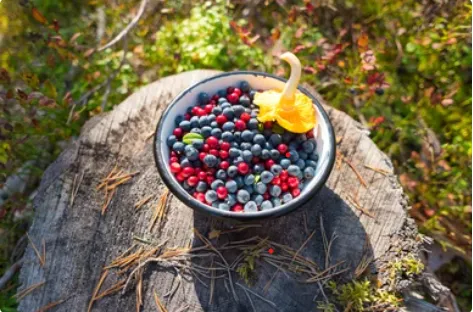Rasa and Adaptogens: Harnessing Nature's Power for Balance and Vitality and Living Radiantly Despite Diabetes
In today’s fast-paced world, balancing health, wellness, and energy is a challenge, especially when managing chronic conditions like diabetes. Incorporating adaptogens—natural substances that help the body adapt to stress—into your daily routine can make a profound difference. In both Ayurvedic medicine and modern wellness practices, adaptogens play a significant role in cultivating Rasa, the vital essence that nourishes and rejuvenates body and mind.
While adaptogens have long been celebrated in Ayurvedic medicine, Western and Scandinavian herbs are gaining recognition for their powerful health benefits. Let's explore the synergy between these ancient remedies and how they can be integrated into a holistic approach to blood sugar balance and overall well-being.
Understanding Adaptogenic Herbs
Adaptogenic herbs are defined by their ability to help the body adapt to various physical, chemical, or biological stressors and restore balance. In Ayurveda, the Rasayana category of herbs is particularly revered for their rejuvenating properties and their role in promoting vitality, longevity, and resilience.
Adaptogenic herbs are found in all cultures and parts of the globe. Simple adaptogens found worldwide are turmeric and members of the parsley family!
I've found adaptogens have been key for diabetics to manage stress and maintain physiological balance. Rege, Thatte, and Dahanukar (2000) discuss the adaptogenic properties of six Ayurvedic Rasayana herbs. These herbs, like Ashwagandha and Guduchi, help modulate stress responses, supporting blood sugar management and overall metabolic health (Rege et al., 2000).
What are Adaptogens?
Adaptogens are non-toxic plants that help the body resist various stressors, whether physical, emotional, or environmental. By promoting a state of balance (homeostasis), adaptogens boost energy, improve resilience, and support the body’s ability to adapt to stress—making them ideal for people managing diabetes, chronic stress, or metabolic imbalances.
Adaptogens Use in Traditional Practices
Ayurvedic adaptogens are foundational to the practice of Rasāyana, the branch of Ayurveda focused on rejuvenation and longevity. They enhance Rasa, or the body’s life essence, helping to maintain balance and vitality.
Rasa means "juiciness" and vitality in Sanskrit and Ayurveda - among other things! Below are some herbs included to cultivate rasa. Rasayana Formulae (Rasa Juiciness Formula) Rasayana, a cornerstone of Ayurvedic medicine, involves formulations for rejuvenation and longevity. Puri (2018) provides a detailed account of classical formulations such as Amrit Rasayana, Brahm Rasayana, and many others. These formulations support the body's natural healing processes via herbs known as adaptogens, which enhance vitality and resilience (Puri, 2018).
Some herbs can have side effects or trigger allergies, so be sure to follow the recommended dosages, check with your physician, and research any possible interactions.
Key Ayurvedic Adaptogens:
- Ashwagandha (Withania somnifera)
- Known as the "king of Ayurvedic herbs," Ashwagandha is a powerful adaptogen for reducing stress and balancing blood sugar. It helps improve insulin sensitivity and reduces cortisol, making it an excellent option for managing diabetes-related stress.
- Guduchi (Tinospora cordifolia)
- Also known as Amrita, Guduchi is a potent immune-modulating herb that helps regulate blood sugar levels. It’s particularly beneficial for people with diabetes, as it enhances metabolism and strengthens immunity.
- Amalaki (Emblica officinalis)
- Rich in Vitamin C and antioxidants, Amalaki (Indian gooseberry) is an anti-inflammatory adaptogen that supports digestive health and boosts insulin sensitivity, making it beneficial for blood sugar control.
- Shatavari (Asparagus racemosus)
- A well-known Ayurvedic herb for female health, Shatavari supports hormonal balance and strengthens the immune system, particularly beneficial for women with diabetes who may experience hormonal imbalances or metabolic changes.
Western Adaptogens: Tapping into Local Wisdom
Western herbalism offers a treasure trove of adaptogens that can complement the Ayurvedic approach to health and stress management. Many of these herbs have long been used in Western traditions for building resilience and vitality.
Key Western Adaptogens:
- Rhodiola (Rhodiola rosea)
- A powerful adaptogen often used to increase endurance and reduce fatigue, Rhodiola is particularly effective at combating physical and mental stress. It has been shown to improve insulin sensitivity and balance blood sugar levels, making it ideal for those managing diabetes.
- Eleuthero (Eleutherococcus senticosus)
- Commonly known as Siberian Ginseng, Eleuthero supports energy, improves focus, and helps the body adapt to stress. Studies suggest that it may help regulate blood sugar and reduce insulin resistance. If buying an herbal supplement or other preparation, make sure you've purchased eleuthero or Siberian ginseng, not true ginseng.
- Holy Basil (Ocimum sanctum)
- Also called Tulsi, this sacred herb is revered for its ability to combat stress and support overall health. Holy Basil helps stabilize cortisol levels and reduce blood sugar spikes, making it especially useful for people with diabetes.
- Schisandra (Schisandra chinensis)
- A berry adaptogen known for improving mental clarity and endurance, Schisandra is often used in Western herbalism to combat fatigue and stress while supporting healthy blood sugar levels.
Scandinavian Adaptogens: The Nordic Way to Resilience
In the harsh climates of Scandinavia, certain herbs have evolved to thrive and develop unique properties that support human resilience. Scandinavian adaptogens are prized for their ability to promote endurance, immune health, and metabolic balance—all important for managing diabetes and overall wellness.
Key Scandinavian Adaptogens:
- Chaga Mushroom (Inonotus obliquus)
- A medicinal mushroom found in northern Europe, Chaga is rich in antioxidants and has potent anti-inflammatory properties. It helps regulate blood sugar and supports immune function, making it a valuable addition to a diabetes management plan.
- Bilberry (Vaccinium myrtillus)
- A close relative of the blueberry, Bilberry is well-known for supporting eye health and improving circulation, two key concerns for people with diabetes. Rich in antioxidants, Bilberry helps to manage blood sugar and protect against diabetic complications like retinopathy.
- Rhodiola Rosea (also found in the Western list)
- Native to the cold climates of Scandinavia, Rhodiola is a particularly prized adaptogen in Nordic countries for its ability to support endurance and reduce fatigue. It’s a key adaptogen for maintaining metabolic balance and is excellent for supporting blood sugar regulation.
- Angelica Root (Angelica archangelica)
- A traditional Scandinavian adaptogen, Angelica Root is known for its ability to support circulation and promote digestive health. It has been traditionally used to help the body adapt to stress and promote balance, making it useful in diabetes care by supporting both metabolism and circulation.
How to Incorporate Adaptogens into Your Routine
Adding adaptogens into your daily regimen can be simple and highly effective for supporting long-term health and vitality. Here’s how you can incorporate these adaptogens into your Rasa practices:
- Herbal Teas: Adaptogenic herbs such as Ashwagandha, Tulsi, and Rhodiola can be brewed into teas for a soothing and rejuvenating drink. Consuming these teas daily helps promote balance and reduces stress.
- Tinctures and Supplements: For more potent doses, consider using tinctures or capsules of herbs like Chaga, Eleuthero, or Amalaki. These can be added to your morning routine to support blood sugar balance and stress reduction.
- Adaptogen Smoothies: Boost your morning smoothie with adaptogenic powders like Shatavari, Bilberry, or Schisandra. These can help energize your day and promote metabolic health.
- Rasāyana-Inspired Diet: Incorporate adaptogen-rich foods into your daily diet, such as ghee, honey, and antioxidant-rich fruits like Bilberries and Amalaki to enhance vitality and rejuvenation.
Modern Scientific Insights
Studies have shown that these herbs offer protective mechanisms against stressors by producing immunostimulants. For instance, Amla has been found to combat free radical damage induced during stress, predominantly through its antioxidant capabilities. In a recent study, Guduchi was discovered to enhance stress response normalization, contributing to stable metabolic processes. These findings underscore the potential of adaptogenic herbs as valuable tools in managing diabetes and beyond.
Practical Integration into Daily Life
To harness the potential of these adaptogenic herbs, they can be integrated into your daily regimen in several ways:
- Herbal Teas: Consuming these herbs as teas is a soothing way to incorporate their benefits.
- Supplements: Standardized extracts ensure consistent therapeutic effects and dosage.
- Dietary Integration: Many herbs can be added to meals, smoothies, or snacks. For instance, Amla can be consumed as a fruit or in powder form, while Shatavari powder can enhance smoothie recipes.
Practical Tips for Energy Management
When sluggish, practices like Kapala Bhati Pranayama and energizing yoga sequences can boost circulation and invigorate the body. Adjusting your environment with bright lights and stimulating music can also help transform lethargy into energy. Similarly, embracing different Rasas, or emotional states, like shanti for stress or sringara for emotional connection, can balance your moods and support mental wellness.
Dietary Changes for Diabetes
Dietary modifications should always be undertaken with medical guidance to ensure they meet nutritional needs without adverse effects. A balanced diet rich in fiber, proteins, and healthy fats is crucial for maintaining stable blood sugar levels. Incorporating adaptogenic herbs alongside these dietary changes can provide additional support (American Diabetes Association, n.d.; Harvard Health Publishing, n.d.).
Conclusion: Cultivating Balance Through Adaptogens and Rasa
Incorporating adaptogens—whether Ayurvedic, Western, or Scandinavian—into your daily routine can help you achieve a balanced state of health and enhanced resilience, especially when managing diabetes. These powerful herbs support the body’s ability to adapt to stress, improve blood sugar control, and rejuvenate your energy and vitality.
By integrating these adaptogenic practices into your life, you cultivate your inner Rasa, allowing you to live more fully, energetically, and in harmony with yourself and the world around you.
Karin, Integrative Holistic Specialist

References
- American Diabetes Association. (n.d.). Holistic Management of Diabetes. Accessed from: https://www.diabetes.org/
- Harvard Health Publishing. (n.d.). Managing Stress and Metabolic Conditions with Lifestyle Practices. Accessed from: https://www.health.harvard.edu/
- Inchauspé, J. (2022). The glucose revolution: The life-changing power of balancing your blood sugar. Simon & Schuster.
- Hyman, M. (2012). The blood sugar solution: The ultra-healthy program for losing weight, preventing disease, and feeling great now!. Little, Brown and Company.
- Puri, H.V. (2018). Ayurvedic Formulations and Classical Medical Literature. Link.
- Rege, N. N., Thatte, U. M., & Dahanukar, S. A. (2000). Adaptogenic properties of six Rasayana herbs used in Ayurvedic medicine. Phytotherapy Research. Accessed from: https://www.ncbi.nlm.nih.gov/pubmed/10650902.
- Yoga Journal. (2021). Understanding Rasa. Accessed from: https://www.yogajournal.com/
- Yogapedia. (2023). What is Rasa? Accessed from: https://www.yogapedia.com/
















